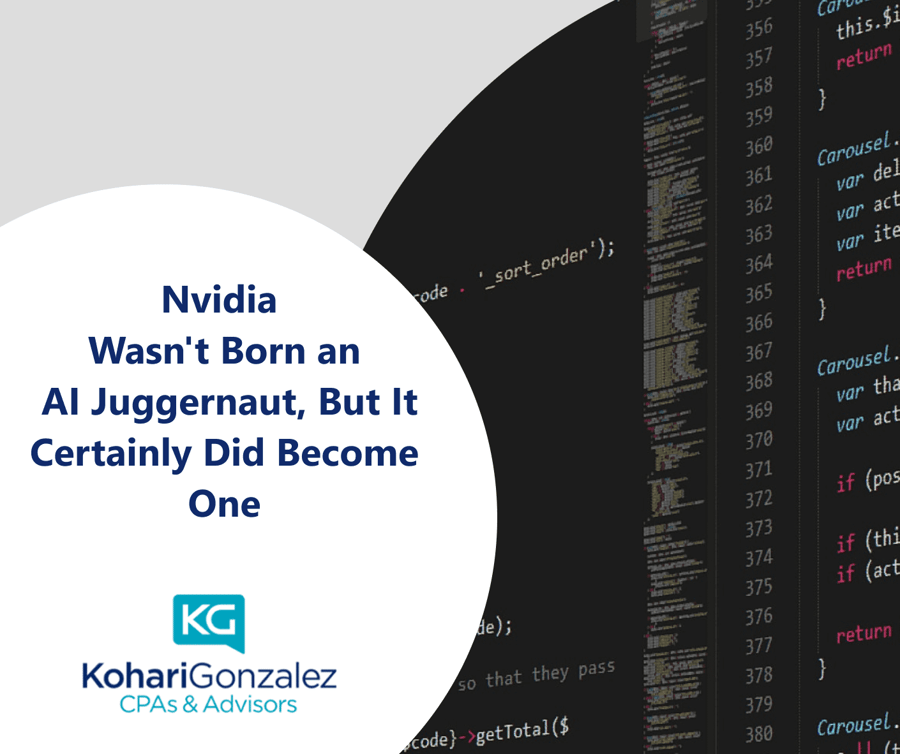
If you've been paying attention to the news recently, you're no doubt well aware that artificial intelligence is a topic of much discussion. Thanks largely due to the launch of ChatGPT and the potentially disruptive implications of what this topic can do, it's everywhere.
The FTC recently announced that it's investigating whether ChatGPT itself harms consumers. Much of Hollywood is currently on strike due to, in part, concerns about the implications of AI on their jobs. The list goes on and on.
But while much of the discussion has centered around companies like OpenAI, there is one name that isn't getting as much attention that likely should: Nvidia. What began life as a "capable" manufacturer of computer graphics adapters in the early 1990s has long since ballooned into a legitimate dominant force in the world of artificial intelligence. But where did Nvidia come from, and how did they get to the position they are currently in? The answers to those questions require you to keep some essential things in mind.
An Ascent to Industry Leader
Just a year after Nvidia was originally founded, it formed a strategic partnership with a company called SGS-Thompson. The goal was clear: Nvidia wanted to expand its manufacturing capacity in a dramatic way. This allowed them to co-market and sell the then-revolutionary RIVA128ZX, a 3D-capable graphics processor that would change the face of computing.
One year after that, Nvidia would design and release its first product of its own: the NV1. Computer gaming aficionados over a certain age will remember this time fondly. The card itself was marketed as the "Diamond Edge 3D" and it became an incredibly sought-after item. It offered both 2D and 3D graphics, along with state-of-the-art (again, for the era) quadratic textured mapping.
It's also important to keep in mind that the early 1990s was arguably the golden era of fighting games with titles like "Street Fighter" and "Mortal Kombat" selling millions of copies. This is part of what led Sega to build their "Virtual Fighter" game using Nvidia's own graphics technology.
This trend continued throughout the remainder of the 1990s, further cementing the company's reputation. If you remember a technology called Direct3D and Microsoft's DirectX drivers, you have Nvidia to thank for them. DirectX is still shipped with all versions of the Microsoft Windows operating system to this day.
By 2002, Nvidia had shipped over 100 million products and was named the fastest-growing company in the United States.
Cementing Its Position as an AI Titan
For years, Nvidia's primary focus was on enabling the technology that would make video games revolutionary. It turns out, those same hardware components would be hugely helpful to the more than 3,000 startups focused on artificial intelligence.
Not only are these startups purchasing Nvidia hardware these days to fuel their AI and deep learning efforts, but so are Google, Microsoft, Facebook, and even Amazon. They're buying as many as they can get to fuel their data centers. So as AI becomes more popular and commonplace, companies are turning to Nvidia in droves to accomplish their own goals.
It turns out, it really does pay to be what is essentially "the only game in town" in more ways than one.
Things have gotten to the point where, in only eight months, Nvidia's stock tripled. It's also joined a very rarified club of companies that have over a $1 trillion valuation - with Apple, Alphabet, Microsoft, and Amazon being the others.
If nothing else, Nvidia's story is an impressive one that again underlines the importance of being open to pivoting. Regardless of where your company came from, what its original focus was, and how successful it was to that end, the market will always change around you. There will be conditions that are beyond your control that you can either adapt to and continue your success or find yourself left behind.
Nvidia clearly chose the latter, taking the reputation it developed over the years and turning it into something totally new nearly thirty years after it originally opened its doors. They could have continued serving the video game market indefinitely and remained successful. Now, they're shifting their focus towards AI as the world does the same and this pivot in focus couldn't have come along at a better time.



